U.S. inbound travel reaches priority status
08 October 2010 9:37 AM
By Jeff Higley
Editorial Director
jeff@hotelnewsnow.com
Editor’s note: HotelNewsNow.com editorial director Jeff Higley was a participant in the panel that he is reporting on in this article.
SCOTTSDALE, Arizona—With millions of jobs possibly on the line, it’s time for the U.S. to get serious about attracting visitors from other countries. And while the Travel Promotion Act that was passed earlier this year is a big step forward, panelists at the International Society of Hospitality Consultants’ annual convention said there’s still much to be done.
Part of the solution is the creation of the President’s Export Council that serves President Obama and includes Richard Friedman, an hotelier from Massachusetts. Another part is the creation of a travel promotion board that serves under the Export Council’s umbrella and includes Caroline Beteta, president and CEO of the California Travel and Tourism Commission.
“Tourism is actually responsible for 6.2% of our (gross domestic product), which means we bring people here, they leave their money here, then they go home,” said moderator Rick Swig of San Francisco-based RSBA & Associates. “But the U.S. has never had an active marketing or solicitation activity related to attracting international tourism, and given the imbalance of trade and our deficits, every dollar is going to help, and that’s why Mr. Friedman’s position on the Export Council is really so critical.”
Friedman, who has long-standing ties with President Bill and Hillary Clinton and other high-ranking Democrats, said he knows the situation for incoming international tourists is dire and hopes the Export Council can help bring things in line.
“There is no question, it’s a mess,” said Friedman, who also serves as president and CEO of Carpenter & Company. “It is not an unsolvable problem. There’s no question that the left hand doesn’t know what the right hand is doing.”
‘No one in charge’
Friedman said that during his latest briefing with President Obama about three weeks ago, it was clear the President and his advisors “are quite acutely aware that there is no one in charge.”
The panelists took turns beating up the government’s attempt.
Bernard Delomenie, partner with Horwath HTL, told a story about his trip to the United States a couple of weeks ago that spotlighted the flaws in the current system—a system that includes a US$14 fee to support the TPA initiative. He said it was impossible to pay the fee online because the website kept crashing, so 40 travelers on his plane were coming to the U.S. without paying the fee. The snafu eventually was solved, but it demonstrated the need for a cohesive approach.
David Kong, president and CEO of Best Western International, said international arrivals to the U.S. account for US$60 million to US$70 million in bookings.
“Some of the challenges … that (US)$14 fee was supposed to be implemented much earlier this year, but they just couldn’t get the act together to launch it,” Kong said. “They didn’t have the infrastructure to do it. I don’t mean to complain about the government, but this bill has passed, there is a deadline on implementing this fee and yet we just throw our arms up and say, ‘Sorry, couldn’t happen. and therefore the Travel Promotion Act won’t be implemented until next year.’ It’s just a very troublesome kind of attitude towards tourism, and that’s reflected throughout many of the encounters in international arrival a person would encounter.”
Having a cohesive approach has helped other countries, most notably in Asia, said A.J. Singh, associate professor at The School of Hospitality Business at Michigan State University.
“(The Pacific Asia Tourism Association) has given sort of this unified image of the region … they’re very active in promoting tourism there,” Singh said. “The Association of Southeast Asian Nations has all kinds of initiatives to sort of create that brand. … In the U.S., we don’t have a unified image or promoting group that can actually do that. It’s kind of a state level or by individual position.”
Beteta said the lack of a tourism “brand” in the U.S. is evident on Capitol Hill as well.
“We’re actually an industry of industries,” she said. “We’ve actually done studies to say ‘What is our brand? What is our shared voice? What is our shared political voice on the Hill?’ Largely it’s the airlines that define that shared voice, and it’s highly negative.”
That lack of a brand shows in various ways, according to Singh. He pointed to the Travel and Tourism Competitive Index, which puts the U.S. toward the bottom of a list of 133 countries ranked for their visa program effectiveness.
“Visa regulations are one of the things that put us at a huge competitive disadvantage,” he said. “It’s a lot easier going to Thailand or Hong Kong or Nepal or, and in fact even now, mainland China. They’re really stepping up because there’s a lot of business going back and forth.”
Friedman said the visa process is tedious, and that weighs down the whole system.
A law passed after 9/11 requires a visa applicant to have a two-minute interview in person with a U.S. visa representative. “In China it takes 48 days to get a visa today, and you might have to travel a thousand miles (to be interviewed),” Friedman said.
A proposed bill will allow for interviews to be conducted over live, secure video lines.
“These visa people who work in the consulates see a hundred people a day and spend two minutes with them and let in 80% of the people,” Friedman said.
It’s important for that to be streamlined to bring more visitors to the U.S. Beteta said 1 in 8 Americans are directly employed in the travel industry.
“We don’t have the grass roots coverage to enact enough Congressional champions,” she said. “So while we finally have the attention of the president and high level officials in (the departments of) Commerce and Homeland Security, you still have to have Congressional champions because there is every incentive to say no to bring these visitors in.”
“There’s a couple of million jobs at stake here,” Friedman said. “I imagine writing an ad saying: ‘America’s friendly, come on over here’ which we’ve never done and which we’re about to do.”

